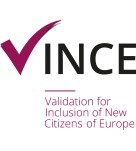 In Lithuania validation is integrated within broader educational and employment policy and is seen as supporting goals of lifelong learning. The validation regulations differ among the sectors of education and there is no national strategy for validation as a separate comprehensive policy document. Lithuania also lacks a system for coordination of validation across the education sector, the labour market and the voluntary sector.
In Lithuania validation is integrated within broader educational and employment policy and is seen as supporting goals of lifelong learning. The validation regulations differ among the sectors of education and there is no national strategy for validation as a separate comprehensive policy document. Lithuania also lacks a system for coordination of validation across the education sector, the labour market and the voluntary sector.
Qualifications at all levels of the Lithuanian Qualifications Framework (which corresponds to the EQF) may be acquired either through formal education, or through gaining professional experience or by independent study. Validation is carried out by the relevant education institutions (HE institutions in the case of validation of learning outcomes relevant to qualifications at the EQF level VI – VIII). The results of validation are recognised by the education system and lead to formal qualifications. Validation can be used either for recognition of competences, acquired outside formal education, as a part of a formal education programme attended by the applicant, or for recognition of a qualification at a certain Lithuanian Qualifications Framework level.
VPL in Higher Education
HE institutions are responsible for validation of learning outcomes corresponding to qualifications at the EQF levels VI – VIII. Validation at the HE level is decentralised and HE institutions have internal procedures for recognising candidate’s non-formal and informal learning, which are developed in line with recommendations issued by the Ministry of Education and Science (2010). Validation at the HE level proceeds in four stages:
- information,
- consultation,
- assessment and
- decision.
Assessment is carried out according to an appropriate formal higher education programme and if the evaluation is positive the applicant is awarded a transcript of records issued by the higher education institution. If the applicant wishes to pursue a higher education qualification, the non-formal and informal learning can be recognised as a part of a relevant study programme, and the person is awarded a diploma after successful completion of the study programme. Up to 75% (in terms of ECTS credits) of the total study programme can be covered through recognition of prior learning.
Institutions use different methods for the validation process. Most popular is the portfolio method, but HE institutions also use other methods, such as interviews, demonstrations, examinations, …
Validation in the Third Sector
In Lithuania there have been very few initiatives for recognition and validation of non-formal and informal learning in the third sector, which were mostly related to recognition of youth work. An example was a national project which, among other activities, aimed to develop and implement a competence assessment mechanism for youth workers including those working in the third sector. Some discussions on the national level were initiated in 2013 on the Symposium on Recognition of Youth Work and of Non-Formal Learning (organised by The European Youth Centre), however no credible solutions or initiatives have been undertaken by or involving youth organisations and voluntary organisations.
Validation in the Labour Market
The level of awareness of the potential value of validation among general public is rather poor and employers also do not see any need to formally certify employees’ competences acquired in non-formal or informal ways.
The Lithuanian Labour Exchange, through its local labour exchange offices, provides jobseekers with information, counselling and employment intermediation services. Counselling includes general consultation, which helps jobseekers to identify their needs and professional opportunities, as well as vocational and psychological consultation. Vocational consultation aims to help jobseekers to assess their skills and personal qualities, to plan their career taking into account their personal features as well as demand from the labour market, and to motivate them for additional training or requalification.
Refugees (and foreigners in general) have limited access to validation services, as validation services are mostly provided in Lithuanian language, which limits their integration into the job market. The Lithuanian Labour Exchange is also active in this respect, as it is planning to use modern professional tests, namely ProfileXT, to speed up the integration of refugees into the labour market. The ProfileXT test will allow refugees to answer questions in their own language, while the results will be available in Lithuanian and will be provided to Lithuanian companies searching for people with a corresponding profile.
Funding of VPL
Usually, applicants for validation are required to pay a certain fee for the validation process, where the fee is determined by the validating institution (education provider) subject to some constraints. At the HE level, the first stage of the validation process, which involves providing information about the validation principles and procedures is free of charge. If the applicant further decides to undertake validation, the cost of validation is calculated taking into account the cost of analysing of the application, consultation and preparation for the validation (this cost cannot exceed the value of one basic social benefit, i.e. 38 Eur in 2016) and the cost of the competence assessment, which depends on the degree of correspondence between the individual’s competences and study results (the cost for one credit cannot exceed 0.6 of the basic social benefit).
At the VET level, if validation is carried out for the purpose of enrolling into a VET study programme, validation is financed from the funds allocated for the VET programme implementation
More Information
- Documents about validation in Lithuania in the VINCE library
- Country Report Lithuania – 2016 update to the European Inventory on Validation of Non-formal and Informal Learning https://cumulus.cedefop.europa.eu/files/vetelib/2016/2016_validate_LT.pdf
- Country Report Lithuania – European Inventory on Validation of Non-formal and Informal Learning 2014 https://cumulus.cedefop.europa.eu/files/vetelib/2014/87066_LT.pdf

